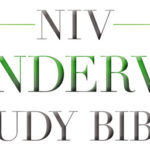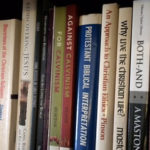Posted: 7/25/03
|
|
Lesson for Aug. 17
Micah 3
When leaders sell out
By Stephen Hatfield
Parents, teachers, coaches, managers and ministers all seek to motivate people to action. Bookstore shelves are filled with titles that define and describe techniques to get the most out of people. A leader desires to do the right things and say the right things in order to reach a goal.
If the ultimate goal is “right living” before God, then how does one reach it? Some say working the right angles and pushing the right buttons are important in motivating people to do what is right. At times, encouraging words are proper. Many will say, “Don't preach at me.” Indeed, there is much to be said for positive reinforcement. People need to be built up, not torn down.
Yet, at other times, the positive can be learned from the negative perspective. The darkness of one's life must be seen for what it is–darkness. The wound must be treated, and this process can be painful.
Micah 3 stands as a classic example of negative teaching which demands a positive response. The scene is a courtroom. Micah, the chief prosecutor, levels serious accusations against the North (Israel) and South (Judah) Kingdoms. God himself is the judge. Micah's case against the nations is “open and shut.” The condemning evidence is a lack of leadership, both political and religious. The prophet continues his opening argument, identifying the ones who are responsible for this desperate situation.
Evidence against
political leaders
The governmental leaders of the nation have failed. The context suggests that “heads of Jacob and rulers of the house of Israel” refers to the South Kingdom of Judah. Though confusing, the name designations of both kingdoms are used interchangeably.
Micah's question in 3:1 needs no answer–the political leaders know better. They hold places of leadership because they know what is required. Not one of them can plead ignorance.
The figures of speech in 3:2-3 are powerful and tragic. History documents the savage treatment of people by evil regimes that rob, maim, rape, murder and oppress. But such things happening in Israel/Judah were unthinkable and unbelievable. These duly elected and trusted leaders took innocent lives and destroyed them. Micah's words are chilling: “You break their bones and chop them up as for the pot and as meat in a kettle” (3:3).
Governmental leaders fully expected to receive God's blessing in spite of these atrocities. Their skewed perspective could no longer accept the truth that disobedience leads to separation from God.
Evidence against
religious leaders
The corruption within the nation did not exist just within political life. The lack of spiritual leadership completed the tragic state of affairs among the people. The prophets used their authority to feed their own mouths and fill their own pockets. To those who submitted to their evil demands, these “false prophets” would show favor. To those who did not, “they declare holy war (3:5).”
These false prophets may have fooled the people, but now they stand before the judgment seat of God. One day their charade will be exposed for what it is. Those who have misused their God-given authority will find themselves in darkness. They will be ashamed. They will be embarrassed, for God will not answer them.
Micah's authority
In contrast to the lack of spiritual leadership among Israel/ Judah, Micah stands as one “filled with power–with the Spirit of the Lord” (3:8). He speaks not for himself, not with his own authority. Micah is conscious of the hand of God upon his life and message. Unlike the deceitful, double-talk of others, Micah's words are hard to hear–for the truth is difficult to accept. But his refusal to back down is the very evidence of God's presence in his life.
Micah's words are God's words. He is not “the pot calling the kettle black.” His mission is to reveal the complete lack of integrity and leadership within both nations.
Truth and consequences
The coming judgment is no illusion. Samaria fell in 722 B.C. at the hands of the Assyrian Empire. Jerusalem did not fall until 586 B.C. when the Babylonian ruler, Nebuchadnezzar, desecrated the temple upon his arrival in the city.
The prophet Jeremiah, speaking to the rulers of Judah almost a century after Micah's lifetime, quoted 3:12 in his warning to the leaders: “Micah of Moresheth prophesied in the days of Hezekiah king of Judah; and he spoke to all the people of Judah, saying, 'Thus the Lord of hosts has said, “Zion will be plowed as a field, and Jerusalem will become ruins, and the mountain of the house as the high places of a forest”'”(Jeremiah 26:18).
Micah's life and words influenced the following generations. Though his message may have been forgotten by most, Jeremiah knew the wisdom of his counsel. He paid close attention to the past and reminded the king in his own day, Hezekiah, of the necessity of obedience. As a result, during Hezekiah's reign, the nation of Judah experienced a revival of sorts.
Two interesting observations emerge from Micah 3. First, the leadership vacuum within Israel/Judah had its roots in coveting, the greedy desire for more and more material things. When people in power misuse their authority, usually it is for the purpose of personal gain. The situation in Israel/Judah was compounded because governmental leaders and religious leaders conspired together to oppress the people. One of the benefits to society where church and state are separate is an atmosphere where God's spokesmen are free from obligation to the state.
Second, these greedy, unscrupulous leaders oppressed people and bribed the judicial system. Spiritual guidance was sold as a commodity (3:11). Before prayers were offered, cash was demanded. All the while, they presumed upon the Lord by expecting his divine protection: “Is not the Lord in our midst? Calamity will not come upon us” (3:11).
When Jesus was tempted in the wilderness at the beginning of his ministry (Matthew 4:1-11), Satan tried to talk Jesus into jumping from the pinnacle of the temple in Jerusalem. The evil one quoted Scripture as he taunted Jesus. The Lord refused, quoting Deuteronomy 6:16, “You shall not put the Lord your God to the test.” To put oneself in danger and then to expect God to come to the rescue is foolish at best. The leaders within Israel/Judah arrogantly called upon God to protect their own interests.
Lessons for today
Leaders lead in one direction or the other. Those who have authority will influence others. The question is where leaders take those who follow them. Desperate days demand strong, capable leaders who will govern and influence with integrity and honesty. A sick society, usually, is a symptom of ineffective leadership.
Understand and protect the separation of church and state. One of the reasons people of Israel/Judah found themselves in such trouble was a lack of accountability among their leaders. Political and religious lines should never become so blurredthat collusion between the two allows innocent people to suffer.
Beware of the temptation to presume upon God. Many Christians think nothing of placing themselves in an awkward, if not dangerous, position and then piously praying for God's protection. Consider the one who brags about driving excessively over the speed limit, then praying for God's help when the tire blows out and control of the car is lost. Jesus made it very clear that there is enough danger in everyday life. To deliberately put oneself in more danger is sin.
Remember consequences follow choices. One of the hardest lessons for believers is the truth of Micah's words regarding choices made. The leaders within Israel/Judah chose to deceive and oppress. Though they were free to choose their actions, they were not free from the consequences of their choices.
People today face the same situation. Too many times, blame is laid everywhere but where it truly belongs. One of the watershed verses in the Bible is Joshua 24:15: “Choose for yourselves today whom you will serve.” Make no mistake–we are free to choose, but what we choose we will serve. People suffer from addictions and illnesses caused by choices made in the past. Joshua's words remind us we are born to serve something or someone. The question is who/what will we serve?
Know the power of the negative. Not all of God's word is spoken from the “thou shalt not” perspective. Too many times, people have ridiculed the Christian life by saying it is a life with a checklist of “dos and don'ts.” Nothing could be further from the truth. When God says, “Thou shalt not,” he is not trying to oppress his children. He is protecting us from actions and things that can harm us.
For example, “Thou shalt not commit adultery” is not God hurting us but his way of protecting husbands, wives and families. The negative leads to the positive.
The court in recess
Micah completes his opening argument before the heavenly court. His speech is filled with accusations. He tells the truth; he minces no words. His harsh words are meant to heal a situation, which, if ignored, will destroy the nations of Israel and Judah. Will the leaders/people take his words to heart and change their ways? History tells us no, but God has a plan to bring his people back.
Sign up for our weekly edition and get all our headlines in your inbox on Thursdays
Questions for discussion
![]() Do you respond best to negative or positive messages when someone is trying to motivate you to action?
Do you respond best to negative or positive messages when someone is trying to motivate you to action?
![]() What standards of conduct should political leaders be expected to maintain?
What standards of conduct should political leaders be expected to maintain?
![]() What standards of conduct should religious leaders be expected to maintain? If different from political leaders, explain your reasoning.
What standards of conduct should religious leaders be expected to maintain? If different from political leaders, explain your reasoning.
![]() How do people presume upon God today?
How do people presume upon God today?













We seek to connect God’s story and God’s people around the world. To learn more about God’s story, click here.
Send comments and feedback to Eric Black, our editor. For comments to be published, please specify “letter to the editor.” Maximum length for publication is 300 words.